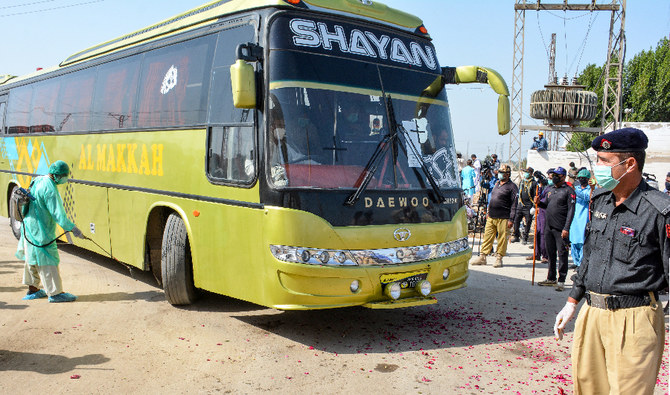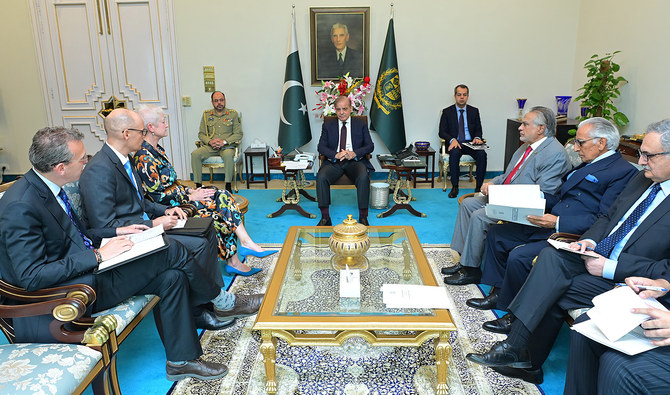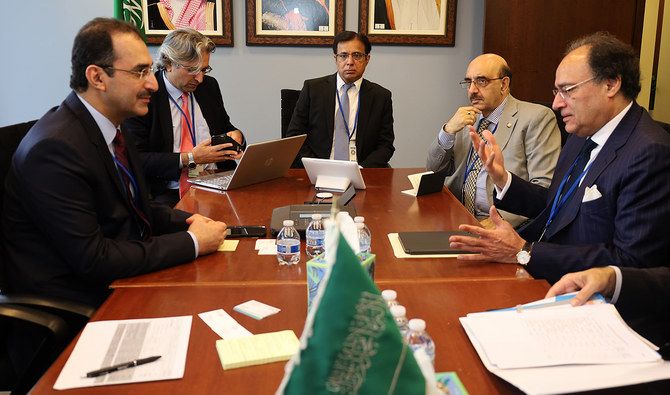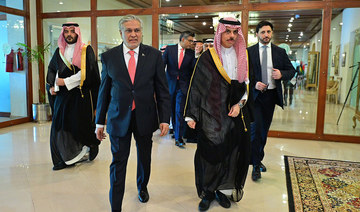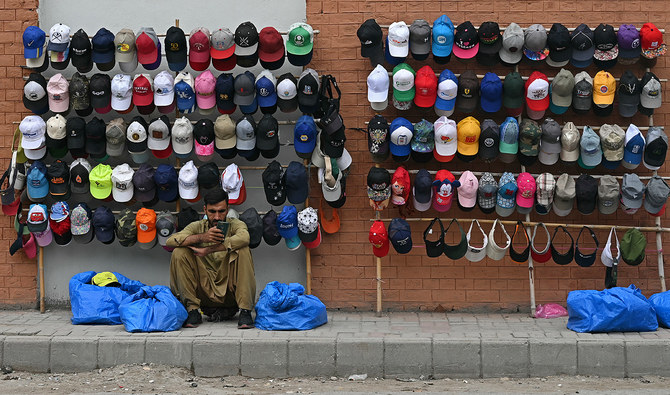DUBAI/MARDAN: Over a hundred pilgrims returned to Pakistan on Thursday from Iran via a land border crossing at Taftan in Balochistan province, immigration documents have shown, despite the border being sealed by the Pakistan government to try to halt the spread of the novel coronavirus from neighboring Iran.
Pakistan and Iran, one of the countries worst-hit by the outbreak, share a 900-kilometer border, frequently used for trade and by minority Shia Muslims who travel from Pakistan to Iran for religious pilgrimages, often using a border crossing at Taftan in the southwestern Balochistan province.
But in past weeks, errors made in the testing and quarantine of travelers who recently returned from Iran have turned Taftan into a hotbed of coronavirus.
The number of confirmed coronavirus cases in Pakistan crossed 1,200 on Friday, health officials said. On Tuesday, when Pakistan had 892 confirmed cases, health chief Dr. Zafar Mirza said 78 percent of them had a history of travel to Iran.
Though infections in Iran began to rise rapidly last month, the Pakistan government only officially shut the border on March 16 — and the Taftan crossing remains porous.
On Thursday, despite the border being closed, 113 pilgrims crossed into Balochistan from Iran, according to immigration documents seen by Arab News, bringing the tally of total people having entered through Taftan since February to 6,080.
Of the 6,080, 4,596 have been sent onwards to their home provinces, while 1,484 remain in quarantine at Taftan, according to figures from the Balochistan chief minister’s office.
The Iranian Embassy in Islamabad did not respond to emailed questions about the continued movement of pilgrims from Iran into Pakistan and whether it had screened pilgrims before sending them home.
In an interview with Arab News on Wednesday, Balochistan Home Minister Mir Zia Ullah Langove said the provincial government had contacted the federal government when the outbreak first began last month and asked them to inform Iranian authorities not to send any pilgrims back to Pakistan without proper screening. He said provincial government officials had also met Iranian authorities to communicate their concerns.
But thousands of pilgrims still arrived in Balochistan without having been screened in Iran, Langove said, “and we were left with no choice but to let them enter and quarantine them on our side of the border.”
He said the provincial government fulfilled its responsibility of quarantining the pilgrims and handing them over to their home provinces with complete records.
“When they [Pakistanis returning from Iran] came back, we, according to our policy, at Taftan, we quarantined them and then once they had completed their quarantine, then we transported them in very special conditions, under security, all of them, to different provinces where they belonged,” health minister Mirza told Arab News in an interview.
But health and government officials have said thousands were released from the Taftan quarantine without being properly tested or even isolated, leading to the spread of the virus.
Unverified video clips on social media showed four or five people lodged in a single tent at the border quarantine site, according to a Reuters report. Others showed scores of people lying close together on the floor of a single corridor of Pakistan House — a building at Taftan, originally built to house pilgrims who were going to, or returning from Iran.
In a media briefing on Friday, Pakistani Prime Minister Imran Khan admitted that the Balochistan government did not have enough funds to provide adequate facilities for travelers arriving from Iran. Balochistan remains Pakistan’s poorest region despite its vast mineral wealth.
This week, the Islamabad High Court issued notices to top government officials in a petition seeking the setting up of a high-level judicial commission to fix responsibility for the spread of the virus in Pakistan.
According to reports in Pakistani media, the petition says the federal government had failed to exercise its diplomatic privileges and convince the government of Iran not to send pilgrims back to Pakistan.
A senior Balochistan government official said Iranian authorities had kept sending pilgrims and other Pakistanis to the Taftan border despite Islamabad having officially communicated that the border was closed. The official declined to be named as he was not authorized to speak to the media about the issue.
“International borders with both Iran and Afghanistan are closed since March 16, 2020 and the same has officially been communicated to Iran but it continues to send pilgrims,” the official said.
The Pakistani foreign office did not respond to questions on whether it had officially asked Iran not to return Pakistanis in Iran, as it had to China when the coronavirus outbreak first broke out in December and Islamabad ruled out bringing back more than 1,000 students from China, where the virus is said to have originated.
The Balochistan government official said 20-50 Pakistanis kept arriving at Taftan daily, a fact confirmed by immigration records seen by Arab News, and added that the Balochistan government had “no option” but to receive them and then send them onwards to their home provinces.
Earlier this month, Balochistan government spokesman Liaquat Shahwani told the local The News that at least 5,000 Pakistanis were stranded in Iran after the closure of the border and a final decision to open the border or allow them in would be made by the federal government.
At a media briefing on Thursday, foreign office spokesperson Aisha Farooqui said Pakistan was working closely with Iran on the movement of pilgrims.
“We are closely coordinating with Iranian authorities to ensure that the movement takes place as per the SoPs [stand operating procedures] prescribed by the government,” she told reporters. “Every effort is being made to sort out issues, if any, through mutual coordination.”
Farooqui did not elaborate on the Pakistani government’s SOPs or explain why people were still entering Pakistan despite the borders being closed.
A senior official based in Islamabad, who declined to be named, told Arab News he was privy to a recent intelligence assessment presented to the federal government by Pakistan’s top spy agency, which had recommended changes in troop deployment on the Iran Pakistan border in the wake of the spread of coronavirus. The report also suggested the reshuffling of custom’s officers posted at the Taftan border.
A second official confirmed the intelligence report, but Arab News could not obtain a copy of the original document.
The first official added that the report said that hundreds of people coming from Iran after the coronavirus outbreak had been allowed to crossover into Pakistan by “influential” people in the government and the provincial bureaucracy who were able to prevail upon the Balochistan government to allow entry.
Last week, opposition politicians and journalists said Special Assistant to the Prime Minister on Overseas Pakistanis, Sayed Zulfikar Abbas Bukhari, had used his “influence” with the Balochistan chief minister to ensure the unchecked entry of pilgrims into Pakistan.
“Neither I have been involved with Taftan nor [I have] any influence,” Bukhari told Arab News, adding that the allegations against him were “completely baseless.”



